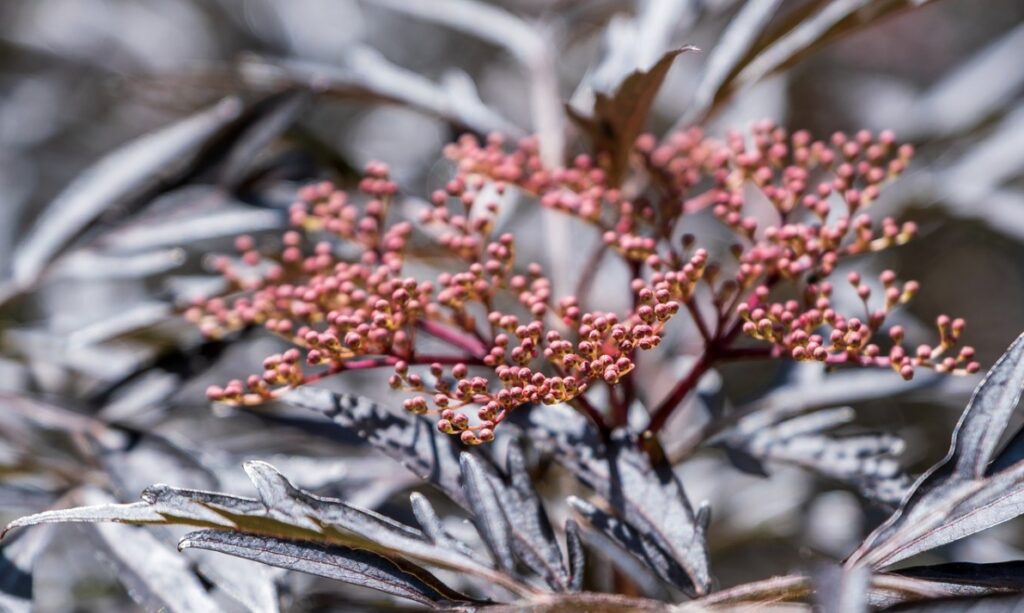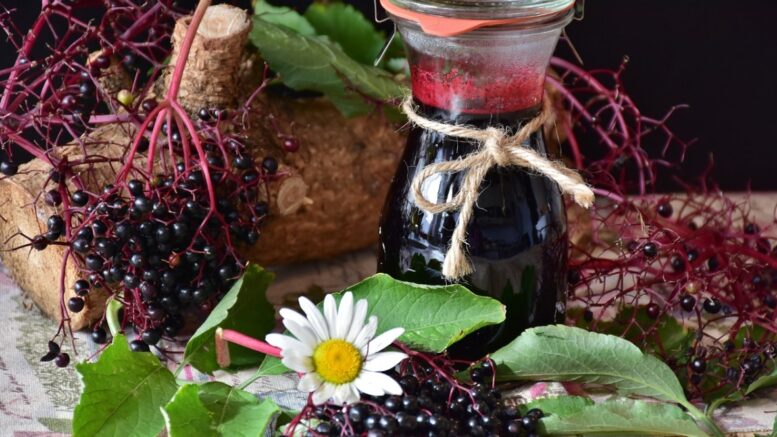Nature is the best physician, and there are fruits found in nature that are so full of health and healing that they can be rightly termed as heavenly food on earth. Elderberries are one of these few treasures on earth. These powerful antioxidants can easily be used in food and drinks due to their sweet-tart flavor. Medical science realized the importance of these berries and utilized them in various supplements like elderberry gummies like those from Gummies Garden and elderberry syrups like those by Mykind
Elderberries, a dark purple berry from the elder tree of Europe, have been known in Europe for a long time and are popular for their medicinal uses. The usefulness of the elderberry plant can be measured by the fact that almost all parts of the elderberry plant are utilized to manufacture various products such as musical instruments, tools, insect repellent products, dyes, etc.
Origin of Elderberries
The Elderberries plant, also known as Sambucus Nigra, is a highly adaptable deciduous plant that grows all around Europe. The plant can thrive in both dry and wet soil. However, it grows well in an area with immense sunlight exposure. Elderberries have been used in Europe since medieval times. Evidence of its use for medicinal purposes has been reported back to 100s of years. The North American Indians used elderberries for the treatment of colds, cuts, and burns.
The father of Medicine, ‘Hippocrates,’ referred to elderberries as his medicine Chest’ due to their healing properties for the treatment of toothaches or fevers, etc. Over time, elderberries have been associated with treating approximately 70 various maladies that include heart diseases, urinary infections, various types of cold and flu, and many other health problems caused by weakened immune system.

Uses of ElderBerries
Delicious elderberries have been long used for medicinal purposes by the people of Europe. They are also consumed raw and in cooked form. The most significant use of elderberries is for making tea and wine. Many pies, jams, and jellies are incomplete without elderberries in their recipe.
Following are the important uses of elderberries.
1. Used as an insect repellent
For years, elderberries have been known to possess insect repellent properties. This is why farmers use twigs of elderberry plants to place near cattle ears for the prevention of vermins and insects.
2. Used as Dyes
The leaves of the elderberry plant, its bark, and the berries themselves are used for the production of dyes of green, purple, and black color.
3. Used as Medicines
Elderberries have been found to possess antibiotic compounds. Syrups used for fighting flu have elderberries in them. Elderberries have proven to be really effective in minimizing pain and fever. The fruit is also active in combating illnesses like mumps and measles. Elderberries are reported to indicate activity against viruses.
4. Used in making tools
A wide range of tools can be made from the trunk of the elderberries. Fences, stakes, and even combs are made from the root wood of the elder tree. Also, instruments of wind like pan-pipes and flutes are also made from the branches of the elder tree, which are very easy to hollow.
5. Used for Beauty Enhancement
Since the Victorian era, many seeking a healthier and brighter complexion have used distilled elderflower water.
6. Used for a Stronger Immune system
Elderberries are full of flavonoids. These are reported to improve the immune system. Notably, it increases your vitamin C intake.
7. Used for the treatment of constipation
Dried elderberry tea helps in curing constipation. This is due to the presence of anthraquinone, which possesses laxative properties. This tea can safely be consumed for up to five days without a gap. Anthraquinone increases intestinal pressure and promotes the clearance of the bowel.

Side Effects of ElderBerries
Cooked Elderberries are safe when consumed through the mouth. It can be taken for up to as long as twelve weeks. However, raw or unripe elderberries are not suitable for direct consumption from the mouth. Raw elderberries might cause vomiting, nausea, and even diarrhea. Precautions must be taken while consumption of elderberries to avoid an overdose. Pregnant women or women on lactation must avoid the consumption of elderberries. Also, children under 12 shouldn’t consume any elderberries as there isn’t any evidence of elderberries being safe for the kids.
There is a small number of lectins present in the elderberries. If overeaten, these could cause stomach problems. Along with traces of lectins, cyanides are also present in elderberries, which is a toxin and an overdose has to be avoided at all costs.
Raw elderberry juice has also been reported to make people ill and cause weakness, numbness, dizziness, etc. however, all the toxic substances found in elderberries can easily be removed through cooking.
Conclusion
The bottom line is that elderberries have a great variety of essential health benefits. Although, precautions should be taken on their identification. It is best that elderberries are consumed in a cooked state which helps remove all toxins from the body, prevents diseases, and kills pain. Elderberries also have some side effects, but most of them aren’t serious or life-threatening.
